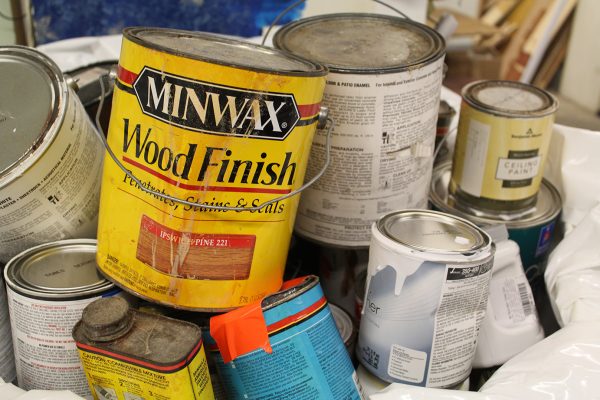Product Stewardship: Maine’s Architectural Paint Recycling Program
 NRCM is proud to have paved the way for Maine to become the 8th state in the nation to begin an industry-run paint collection and recycling program, called PaintCare. This simple and convenient program is a huge benefit to Mainers and our environment.
NRCM is proud to have paved the way for Maine to become the 8th state in the nation to begin an industry-run paint collection and recycling program, called PaintCare. This simple and convenient program is a huge benefit to Mainers and our environment.
Before the PaintCare program, most Mainers stockpiled old paint in their basements or garages, and much of it ended up in landfills or incinerators. This was a problem because oil-based paint is flammable, and much older paints can contain lead. No towns in Maine were collecting latex paint for recycling, and residents were instructed to dry out their leftover paint at home with kitty litter and then throw the paint, metal container and all, into the trash. At that time there were no good options for the safe and convenient disposal of unused paint, aside from haphazard and costly household hazardous waste collection events in municipalities.
Now, Maine residents can chose from more than 80 convenient locations to drop off unused paint, which prevents more than 200,000 cans of unused paint from being improperly disposed of in landfills and incinerators each year. This saves millions of dollars for Maine municipalities who no longer have the sole responsibility or manages all of the unused paint.
The PaintCare program is funded by a fee placed on each can of paint at the point of sale. Fees are based on the size of the paint can and range from $0 to $1.60. All Maine residents can drop off unused paint, for free, at a participating drop-off location (primarily paint retailers) regardless of whether the paint was purchased before the program went into effect on October 1, 2015. Click here for details on what products are accepted.
The PaintCare Program is widely supported by the paint industry, the environmental community, local governments, homeowners, and small businesses. NRCM worked hard to pass the PaintCare program through the Legislature back in 2013, and defended the program against overly restrictive DEP rules that could have prevented it from getting off the ground in 2015. You can count on NRCM to monitor and promote this program, ensuring its success into the future.









